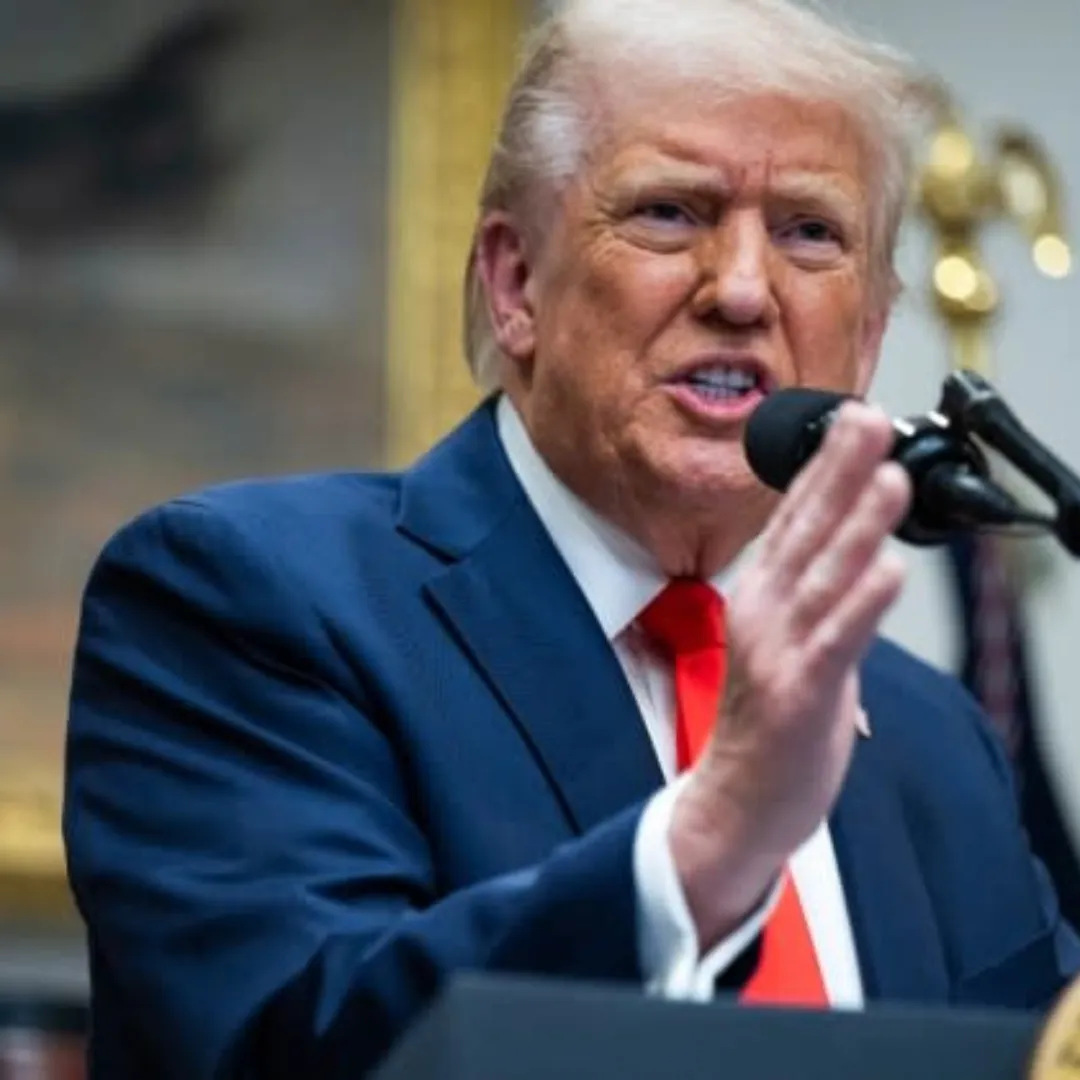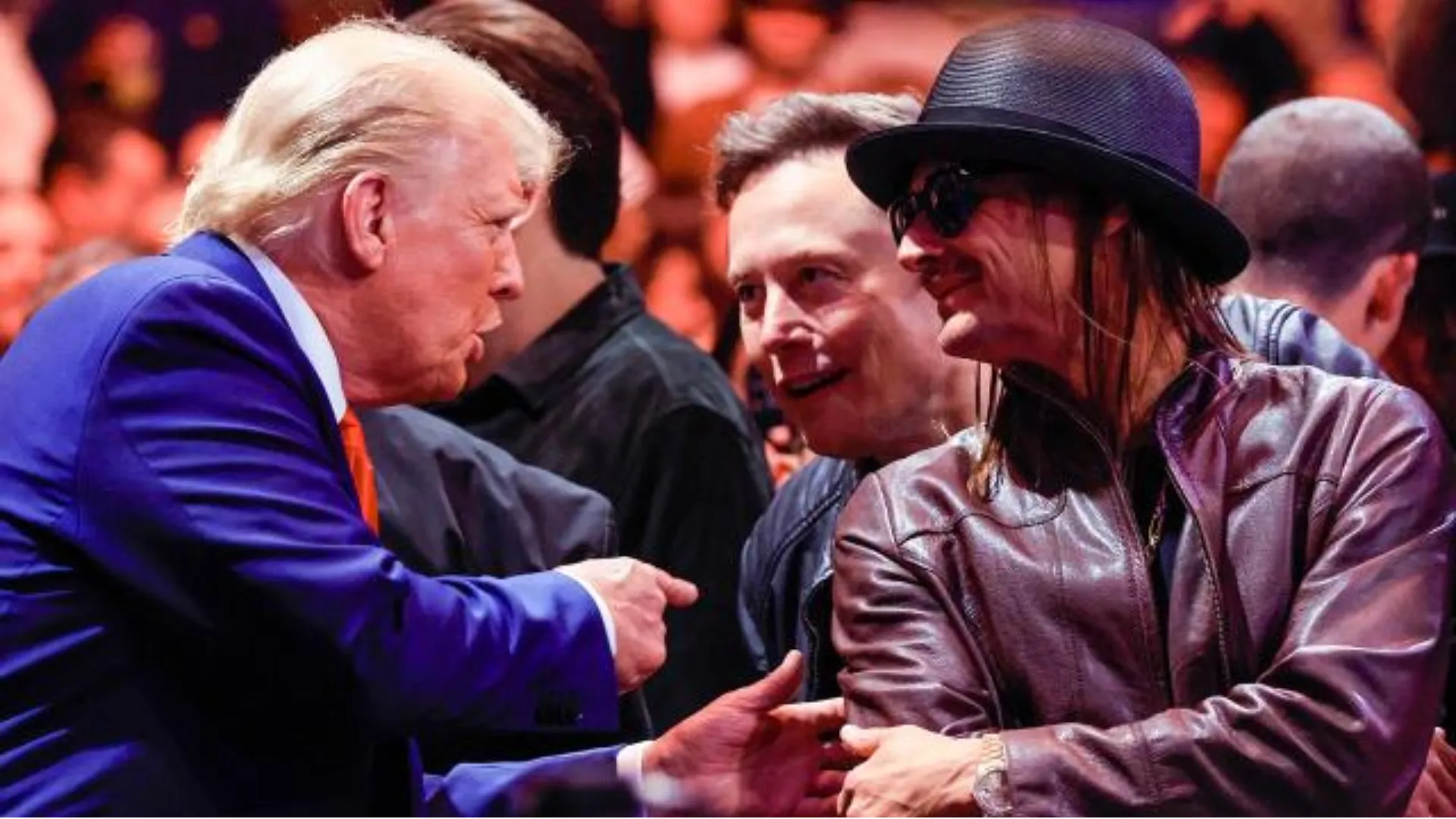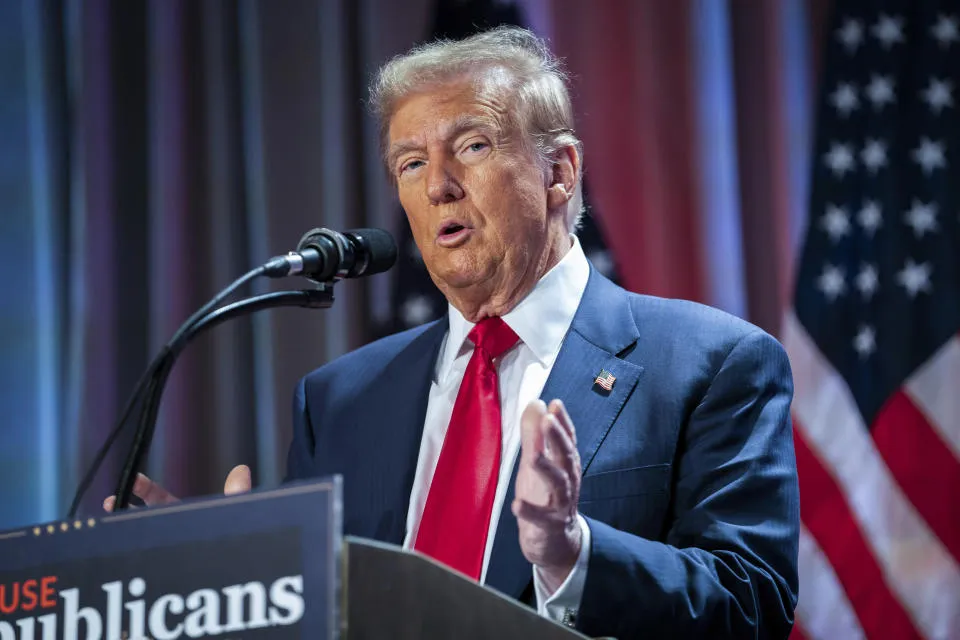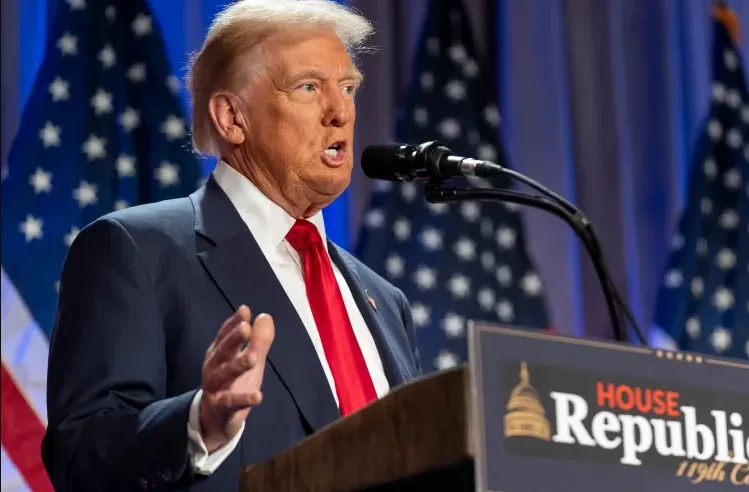President Donald Trump, never one to whisper, delivered a thunderous address to donors and lawmakers at the National Republican Congressional Committee (NRCC) Dinner in Washington Tuesday night, declaring his sweeping new tariffs a resounding success — even as global markets slid and world leaders reportedly awaited callbacks.
“Countries are calling us up, kissing my a,”** Trump told the crowd with a grin. “They are dying to make a deal.”
His remarks came just hours before a massive new wave of tariffs — including a 104% levy on Chinese imports — was set to take effect at midnight, part of the administration’s latest aggressive push to rewrite global trade terms on America’s own terms.
With the S&P 500 and Nasdaq Composite tumbling, and investor confidence sagging under the weight of trade uncertainty, Trump’s mood at the podium was anything but cautious. Instead, he cast the moment as proof of strength — a bold stroke by a president, he claimed, finally freed from internal resistance.
“This time I’m doing what I want to do with respect to tariffs,” he declared. “It’s going to be legendary. You watch. Legendary in a positive way, I have to say.”
Trump’s remarks — part campaign rally, part policy declaration — continued a trend that’s defined much of his second term: using the mechanics of trade to wage a global spectacle.
Holding court at the National Building Museum, the president relished describing foreign leaders as desperate, portraying the U.S. as finally getting its due. “‘Please, sir, make a deal. I’ll do anything. I’ll do anything, sir,’” Trump said, mimicking world leaders with dramatic flair.
“And then I’ll see some rebel Republican... some guy that wants to grandstand and say, ‘I think that Congress should take over negotiations.’ Let me tell you, you don’t negotiate like I negotiate.”
Despite the bravado, there’s a stark divide between the president’s claims and the economic reality unfolding in real time.
According to The Wall Street Journal, Tuesday’s trading session left the S&P 500 down 1.6% and the Nasdaq sliding by 2.2% — both at their lowest levels since early 2024. Global indexes in London, Tokyo, Frankfurt, and Hong Kong also took hits, with fears mounting that the tariffs could trigger a broader economic cooldown.
Trump repeatedly cited the “most successful 100 days in the history of this country” — a line that drew applause in the ballroom and skepticism outside of it.
“I believe that’s right,” he added. “I really do.”
The president's framing reflects a broader messaging effort by the administration, one that emphasizes short-term pain for long-term gain, and paints tariffs as a critical negotiating tool rather than a blunt instrument.
Yet even within the White House, the story isn’t always consistent.
On Monday, Trump told reporters that the new tariffs could be either “permanent” or “negotiable.” By Tuesday, Treasury Secretary Scott Bessent told CBS News that the tariffs are “negotiable but not a negotiating tactic.”
Meanwhile, Politico reported that several world leaders — including officials from the EU, South Korea, and Japan — have not received responses from Trump’s team about scheduling talks, despite repeated attempts.
When asked, White House Press Secretary Karoline Leavitt dismissed the concern. “The president will talk to any country that picks up the phone to call,” she said. “And I can tell you, the phones have been ringing off the hook wanting to talk to this administration.”
But those ringing phones may be ringing into silence — or into a queue of trade partners growing increasingly anxious about the direction and duration of Trump’s latest economic offensive.
Trump’s defenders say the president’s blunt tactics are designed to create leverage that traditional diplomacy lacks.
“The world’s been ripping us off for decades. Now it’s our turn,” Trump said during his remarks. “We’re gonna make our country even stronger, stronger than it ever was.”
But economists warn that retaliatory measures from China, Europe, and Latin America could hammer U.S. manufacturers, farmers, and exporters — industries that have already weathered uncertainty over the last several years.
“Markets don’t respond to speeches. They respond to policy, and policy uncertainty is poison for business,” said Dr. Rachel Lin, a global trade economist at NYU. “When a president brags about tariffs while indexes tank, that’s a disconnect — and investors know it.”
While most Republican lawmakers have fallen in line with Trump’s tariff expansion, a quiet resistance remains — especially among those with districts reliant on imports or exports.
Several Republican senators have co-sponsored legislation that would limit presidential tariff powers, requiring congressional approval after a short grace period. Trump referred to these members as “rebel Republicans” during his speech, brushing off the idea that they could challenge his authority.
“I built this movement without them,” Trump said. “I’ll win again without them if I have to.”
Still, some inside the GOP are watching the economic blowback with growing unease.
“We support fair trade, not chaos,” said Sen. Mike Rounds (R-S.D.), who stopped short of criticizing Trump directly but emphasized the importance of “clear communication and policy stability.”
Of all the measures in the new tariff package, the 104% levy on Chinese imports looms the largest.
Administration officials claim it will force supply chain relocation, curb intellectual property theft, and strengthen domestic industry. Critics argue it will raise prices on consumer goods, inflame U.S.-China relations, and potentially spur a currency war.
Beijing has yet to announce its full response, but officials there have signaled “strong countermeasures” are coming.
Tuesday night’s speech — full of dramatic pauses, exaggerations, and crowd-pleasing barbs — was vintage Trump. But it also showcased a more defiant, unfiltered version of the former president, now unencumbered by internal opposition from advisers who clashed with him in his first term.
Back then, Gary Cohn, Jim Mattis, and even Steven Mnuchin served as internal checks on Trump’s trade instincts.
Now, those voices are gone — and Trump seems to revel in the freedom.
“This time, I’m doing it my way,” he said, smiling.
And for the Republican base — including the donors and loyalists gathered in Washington — that promise still lands.
Outside the ballroom, however, Main Street and Wall Street are doing the math.
Higher prices. Slower investment. Global instability.
For Trump, it’s all part of the deal. But for others, the risk is starting to outweigh the return.
“He’s betting that fear will force concessions,” said Dr. Lin. “But in trade wars, there’s no such thing as a clean victory. Someone always bleeds.”
And as the clock ticked down to midnight, with tariffs set to lock into place and no sign of talks scheduled, the tension wasn’t just diplomatic.
It was existential.






